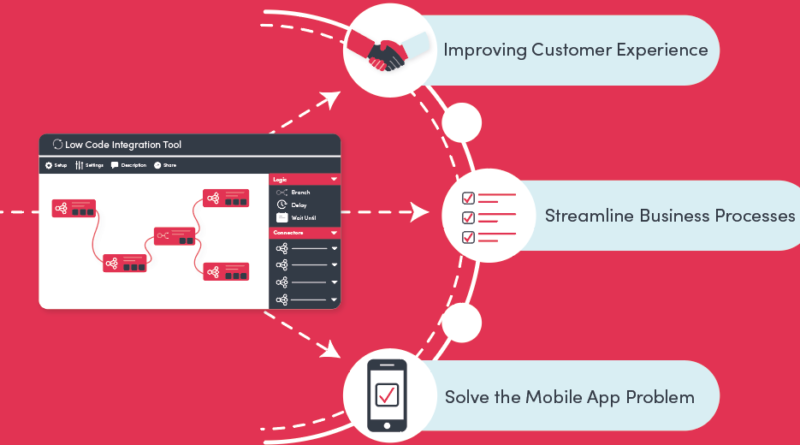Accelerate Digital Transformation with Low Code Application Development
In today’s rapidly evolving business landscape, digital transformation has become a critical imperative for organizations striving to stay ahead of the competition. By harnessing the power of digital technologies, businesses can unlock new opportunities, optimize processes, and deliver exceptional customer experiences. One approach that has gained significant traction in recent years is low code application development, which empowers organizations to accelerate their digital transformation efforts while reducing traditional coding dependencies.
Understanding Low Code Application Development
Low code application development refers to a visual approach to software development that minimizes the need for extensive hand-coding. It provides a platform where users can create applications through visual modeling and drag-and-drop interfaces, significantly reducing the time and effort required to develop complex software solutions. The key features and benefits of low code development make it an attractive choice for organizations seeking agility, flexibility, and rapid innovation.
The Role of Low Code in Accelerating Digital Transformation
One of the primary ways low code accelerates digital transformation is by enabling agility and speed to market. With low code platforms, organizations can streamline their application development processes, allowing for quick prototyping and iterative development. This agility reduces the time-to-market for new digital solutions, enabling businesses to adapt swiftly to changing customer needs and market dynamics.
Moreover, low code development empowers citizen developers, individuals with limited or no coding experience, to actively participate in the application development process. By breaking down technical barriers, low code platforms allow business users to contribute their domain expertise and take ownership of the development process. This collaboration between IT and business teams fosters innovation, accelerates development cycles, and ensures that digital solutions align closely with business goals.
Additionally, low code application development offers scalability and flexibility, two crucial factors in the digital transformation journey. As businesses evolve, their needs change, and low code platforms enable organizations to adapt quickly. These platforms provide the flexibility to scale applications to accommodate growth and seamlessly integrate with existing systems, ensuring a smooth transition and compatibility with legacy infrastructure.
Use Cases of Low Code in Digital Transformation
Low code application development finds applications in various areas of digital transformation. One prominent use case is enhancing the customer experience. By leveraging low code platforms, organizations can build intuitive and user-friendly interfaces that cater to the preferences and expectations of their target audience. Personalization and engagement become easier to achieve, enabling businesses to deliver exceptional customer experiences across multiple touchpoints.
Furthermore, low code development supports process automation and optimization. By streamlining workflows and automating repetitive tasks, organizations can eliminate manual effort and achieve higher operational efficiency. Low code platforms also facilitate the implementation of intelligent decision-making capabilities, enabling businesses to leverage data-driven insights and make informed choices for process improvement and optimization.
Data-driven insights and analytics are essential components of digital transformation. Low code platforms offer seamless integration with data sources and analytics tools, empowering organizations to harness the power of real-time data visualization and reporting. This capability enables timely decision-making, enhances business intelligence, and facilitates data-driven innovation.
Overcoming Challenges in Low Code Development
While low code development offers significant benefits, it is essential to address challenges to maximize its potential. Security and data privacy considerations are of paramount importance. Organizations must ensure that secure application development practices are followed and sensitive data is protected. Compliance with data protection regulations, such as GDPR, is crucial to maintain trust with customers and stakeholders.
Integration with existing legacy systems can pose another challenge. Low code platforms need to bridge the gap between new and old systems, ensuring seamless data flow and interoperability. Robust integration capabilities and compatibility with various technologies are key factors to consider when adopting low code development.
Maintaining code quality and performance is another critical aspect. Concerns about scalability and performance can arise with low code platforms. Implementing comprehensive testing and quality assurance processes is vital to deliver robust and high-performing applications that meet business requirements.
The Future of Low Code in Digital Transformation
The future of low code application development looks promising, with continuous advancements in technology. Artificial intelligence and machine learning integration will further enhance low code platforms, enabling intelligent automation, predictive analytics, and smart decision-making capabilities.
The expansion of pre-built templates and components will simplify and accelerate development cycles, allowing organizations to build applications rapidly without reinventing the wheel. Enhanced collaboration and version control features will improve the overall development experience, facilitating seamless teamwork and efficient code management.
As low code platforms empower citizen developers and business users, the role of traditional developers will evolve. Developers will shift their focus towards strategic and complex tasks, such as designing the architecture, ensuring scalability, and building integrations with external systems. Collaboration between developers and citizen developers will become a norm, fostering innovation and cross-functional expertise.
The impact of low code in digital transformation goes beyond streamlined application development. It enables organizations to embrace rapid experimentation and innovation cycles, helping them stay ahead in a digital world. By empowering business users and citizen developers, low code development promotes a culture of innovation and responsiveness, driving business competitiveness and growth.
In conclusion, low code application development offers a powerful toolset for accelerating digital transformation. By leveraging the agility, flexibility, and collaborative potential of low code platforms, organizations can embark on their digital transformation journey with confidence. As the future unfolds, low code will continue to evolve, empowering businesses to transform, innovate, and thrive in a digitally-driven landscape.




